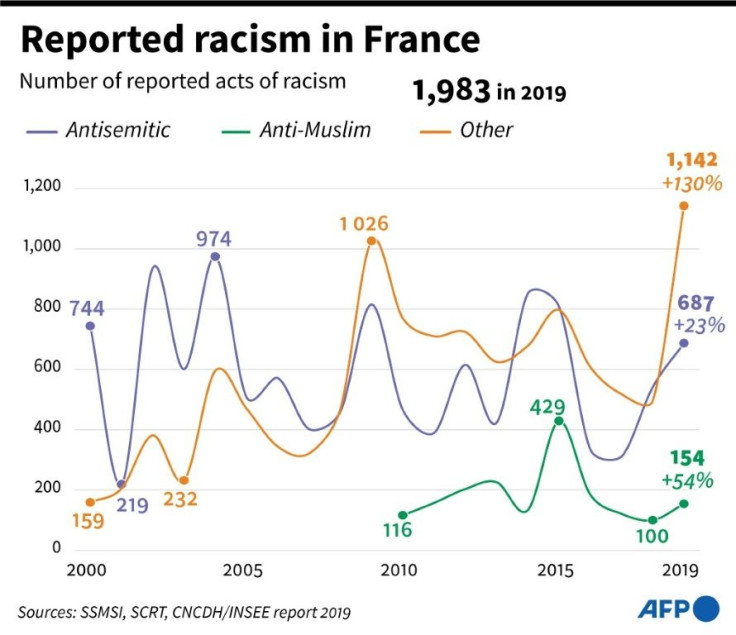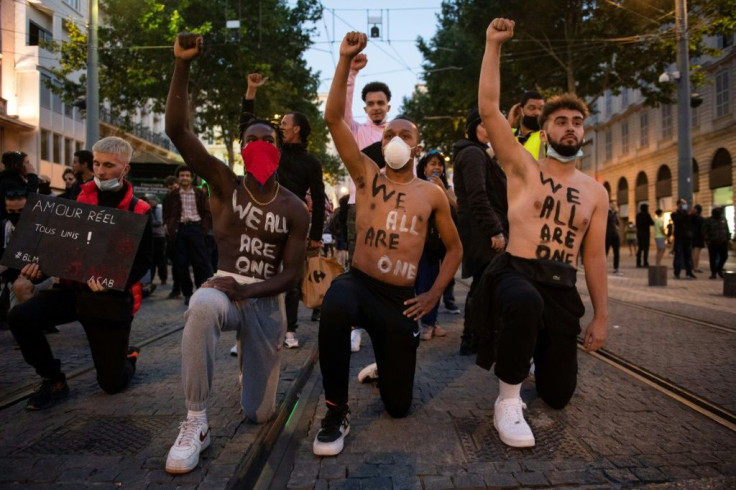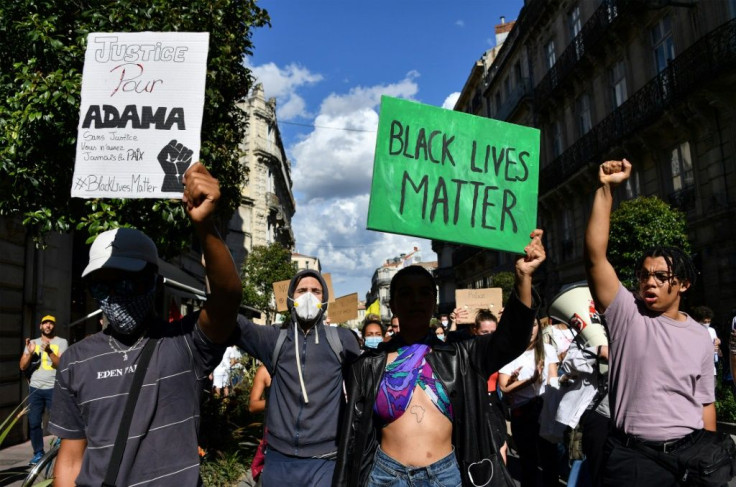France Urged To 'Wake Up' To Discrimination Against Black People

Black and Arab citizens in France are consistently discriminated against by police and in society, two leading watchdogs said Thursday, as angry protests sweep across the country over alleged racism in the security forces and broader society.
France has seen roiling demonstrations in recent weeks protesting the actions of police, many coalescing around the 2016 death of young black man Adama Traore in police custody, which activists say echoes George Floyd's killing in the US.
Human Rights Watch said in a report that the French police have "overly broad" powers "to conduct discriminatory and abusive checks on black and Arab boys and men", leaving too much room for arbitrary and biased decisions.
And the country's governmental human rights body said in its annual report that black people in France are subjected to "many discriminations" and urged society to "wake up" in order to "decolonise" its mentality.
The reports come as France reels from allegations of institutionalised racism in its police ranks, an accusation vehemently rejected by police forces who say the problems are down to individual security force members.
"There is ample evidence that identity checks in France drive a deep and sharp wedge between communities and the police, while doing virtually nothing to deter or detect crime," HRW's France director Benedicte Jeannerod said.

HRW's report -- based on interviews with 90 men and boys belonging to minority groups in Paris, Grenoble, Strasbourg and Lille -- says the stop-and-search checks "often involved invasive and humiliating body pat-downs."
The 44-page document includes 12-year-old Koffi's account, who says his class was subjected to an identity check in front of their school in Bobigny, a disadvantaged neighbourhood in northeastern Paris, as they were leaving on a field trip to the famous Louvre museum.
He said three police officers searched their bags.
"They put their hands in my pockets. They spread my legs and touched my genitals," Koffi said.
Children as young as 10 are targeted, the HRW report said.

French President Emmanuel Macron acknowledged in an address to the nation Sunday that France had to fight against the fact that "the name, the address, the colour of the skin" can affect a person's chances in their lives.
But Macron defended France's under-fire police force, saying they "deserve public support and the recognition of the nation for their work".
On Tuesday his government backtracked on a ban on the use of chokeholds by the police after a backlash by police unions, who demonstrated across France and threw down their handcuffs in protest.
The National Consultative Commission on Human Rights (CNCDH), an official body that advises the government, said in its report that in France "history, culture and prejudice are at the root of anti-black racism."
"Just like in the struggle for equality between women and men, the whole of society needs to wake up to the phenomenon for a decolonisation of minds," the report said.
"Black people all too often occupy a place of lower status in French society."
It pointed to "an over-representation of black people in underqualified jobs", in sectors like cleaning and childcare for black women, and jobs requiring physical strength such as collecting bins or working as a security guard for black men.
Responding to the report, French Prime Minister Edouard Philippe said in a statement: "The observations made by the commission on anti-black racism require a collective realisation that there is a problem."
"The government will study in detail all of the recommendations made in the report," he added.
French Black and Arab cultural figures such as the singer Camelia Jordana, acclaimed film-maker Raoul Peck and actor Omar Sy have all come out in recent weeks to condemn racism in French society.
Peck, the Haitian-born maker of the Oscar-nominated documentary, "I Am Not Your Negro", accused France on Wednesday of being in denial of its racism, its colonial past and its wealth "built on the misery of others".
© Copyright AFP {{Year}}. All rights reserved.





















